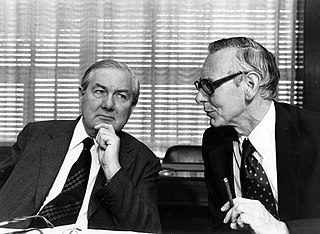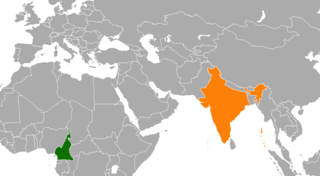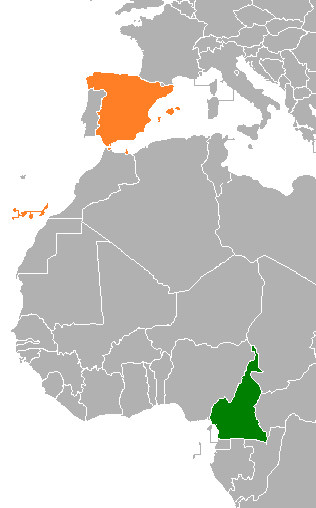
Cameroon's noncontentious, low-profile approach to foreign relations puts it squarely in the middle of other African and developing country states on major issues. It supports the principles of non-interference in the affairs of third world countries and increased assistance to underdeveloped countries. Cameroon is an active participant in the United Nations, where its voting record demonstrates its commitment to causes that include international peacekeeping, the rule of law, environmental protection, and Third World economic development. In the UN and other human rights fora, Cameroon's non-confrontational approach has generally led it to avoid criticizing other countries.
These are lists of incumbents, including heads of states or of subnational entities.

In many countries, the ministry of foreign affairs is the highest government department exclusively or primarily responsible for the state's foreign policy and relations, diplomacy, bilateral, and multilateral relations affairs as well as for providing support, including consular services, for a country's citizens who are abroad. The entity is usually headed by a foreign minister or minister of foreign affairs. The foreign minister typically reports to the head of government.

Paul Biya is a Cameroonian politician who has served as the second president of Cameroon since 1982, having previously been the fifth prime minister of Cameroon from 1975 to 1982. As of 2024, he is the second-longest-ruling president in Africa and the longest consecutively serving current non-royal national leader in the world and the oldest head of state in the world.

Ahmadou Babatoura Ahidjo was a Cameroonian politician who was the first president of Cameroon from 1960 until 1982. He was previously the first prime minister of Cameroon from the country's independence in January 1960 until May of that same year following the creation of the presidency.
Ferdinand Léopold Oyono was a diplomat, politician and author from Cameroon.

Cameroon–United States relations are international relations between Cameroon and the United States.

China and Cameroon established bilateral relations on March 26, 1971. Cameroon is an adherent to the One China Policy.

Cameroon–India relations refers to the bilateral relations between Cameroon and India. The High Commission of India in Yaoundé, Cameroon, headed by High Commissioner H.E. Ambassador Vijay Khanduja [IFS], serves as India's diplomatic representation to Cameroon. India also maintains an Honorary Consulate in Douala. Cameroon has recently operationalised a High Commission in New Delhi with its first High Commissioner yet to be appointed.

Chad–India relations refers to the bilateral relations between Chad and India. The High Commission of India in Abuja, Nigeria is concurrently accredited to Chad. India also maintains an Honorary Consulate in N'Djamena. In 2019, Chad opened a resident embassy in New Delhi.

Cameroon–Spain relations are the bilateral and diplomatic relations between these two countries. Cameroon has an embassy in Madrid. Spain has an embassy in Yaoundé.

Equatorial Guinea–Israel relations are the bilateral relations between Equatorial Guinea and Israel. The Israeli embassy in Yaounde, Cameroon, is accredited to Equatorial Guinea. Equatorial Guinea has a resident embassy in Israel, which opened in 2019 and located in Herzliya.

Cameroonian–Kosovar relations are foreign relations between Cameroon and Kosovo. Formal diplomatic relations between two states are non-existent as Cameroon does not recognize Kosovo as a sovereign state.

Central African Republic–Turkey relations are the bilateral relations between the Central African Republic and Turkey.





































